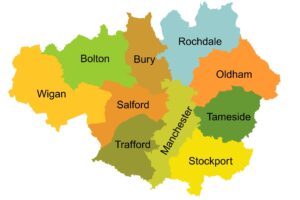Jason Torrance, interim chief executive of UK100, explains the governments recent one-eighty decision to reinstate the use of gas boilers would deface any hope of reaching net zero targets and further bankrupt people struggling with the cost-of-living.
It cannot go without notice that in the same week the Head of the UN, António Guterres, stated ‘the era of global boiling has arrived’ and ‘only with dramatic, immediate climate action’ can we avoid the very worst of climate change, Housing Secretary Michael Gove signalled a potential u-turn on phasing out gas boilers and improving rental property energy performance. This would be nothing short of reckless and would lock vulnerable renters, already battered by the cost-of-living crisis, into higher energy bills for longer.
With wildfires spreading across Europe, it’s hard to think of the climate crisis in terms of a bleak winter back in Britain. But that’s what hit these shores last year and could again. Despite that, the UK is still ‘strikingly unprepared’ for the impacts of the climate crisis, from coping with the hottest temperatures on record to protecting against bitter winters.
Last winter, the energy and cost-of-living crises left hardship and tragedy in its wake. And with energy bills expected to soar again as the cold weather hits, now is the time to take preventative action through energy efficiency.
Energy efficiency is the key. Report after report has highlighted the importance of energy efficiency for boosting the UK economy and reducing consumer bills while tackling net zero. With 7 million homes in fuel poverty, it is time to insulate homes while the sun is still shining.
Yet there is a real risk Westminster is about to fiddle while Europe burns and boils. The recent Uxbridge by-election has unnerved some senior politicians who seem to be retreating from bold Net Zero commitments. In over-analysing the results of one by-election, parties risk ignoring the overwhelming public consensus on net zero action.
The cheapest energy is the energy we do not use. Yet Brits have some of Europe’s draughtiest homes. We are paying the price of governments repeatedly kicking the can down the road on home energy efficiency. The 2013 cut to energy efficiency support saw insulation rates fall around 90%. Policies since have failed to resuscitate the industry. Last year, government-funded efficiency measures fell by half, to 97% below 2012 levels.
Simple upgrades like loft insulation can save households hundreds of pounds a year. Yet 6.2 million households live in poorly insulated homes, bleeding money and energy.
Earlier this year, the Mission Zero report recognised the crucial role of efficiency in delivering net zero, energy security, reduced bills, and recommended decarbonising homes. Gove’s potential retreat is reckless short-termism. Research shows no part of the electorate responds well to net zero scepticism. If designed to save money, it’s wrongheaded — insulation would more than pay for itself. Short-sighted thinking got us here; politicians must take the long view on efficiency.
We cannot pretend there are easy fixes to global energy price spikes. But insulation is within the UK’s control, putting money back into pockets and permanently reducing consumption. The government needs to urgently bolster its efficiency targets.
And as well as the private rented sector, a successful energy efficiency strategy should focus on social housing, where residents are also acutely at risk of fuel poverty. With support, social housing can catalyse the wider efficiency market, reducing costs for private landlords and addressing skills and supply chain gaps slowing wider progress.
Our End The Wait. Insulate. report presents a cost-neutral, oven-ready social housing efficiency plan recognizing local authorities’ ability to deliver measures effectively. We estimate this could support over 20,000 jobs, aligning with Mission Zero’s projection that an efficiency market revival could support 175,000 jobs and add £6bn to the economy by 2030.
The energy crisis hits the poorest households the hardest, with costs rising twice as much as the wealthiest. The only people who will thank Gove for delaying efficiency are landlords and energy company executives. Come the expected winter election, politicians will rue missing the chance to fix roofs while the sun shines. It is time to end the wait and insulate.
Images: KWON JUNHO and Greg Rosenke
More features:

















Leave a Reply